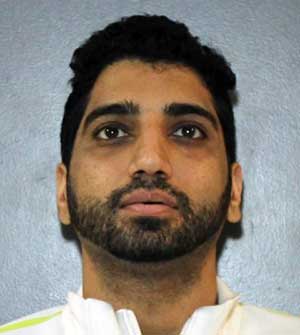ATTORNEY General David Eby announced on Thursday that he has directed the B.C. Prosecution Service to retain Professor Craig Jones, QC, to review the B.C. Supreme Court oral ruling in the Samandeep Gill case, as well as several other rulings applicable to this matter. Jones will provide an opinion on the viability of a Crown appeal in this case.
Jones is former supervising counsel of the Constitutional and Administrative Law Group in B.C.’s Ministry of Justice.
Eby said: “As this matter is under review, I will refrain from commenting further.”
Eby wrote to Assistant Deputy Attorney General Peter Juk on April 16:
“On March 2, 2021, Mr. Justice Masuhara of the BC Supreme Court made an order excluding key evidence under s. 24(2) of the Charter of Rights and Freedoms (the “Charter”) in the matter of R. v. Samandeep Gill, New Westminster Registry… The effect of this decision on the voir dire was to exclude key evidence. As a result, the Crown called no further evidence and Mr. Samandeep Gill was acquitted of the shooting death of Manbir Singh Kajla and the attempted murder of Mr. Kajla’s wife, whose name is subject to a publication ban.

“The BC Prosecution Service has reviewed the Oral Ruling, as well as Justice Masuhara’s previous Ruling on Over-seizure, 2020 BCSC 2030, and Ruling on Charter s. 8 Application, 2021 BCSC 152, and has advised me of its conclusion that there are no reasonable arguments that would lead to a successful Crown appeal in the Gill Case. I have received a briefing from you about this conclusion, and appreciate the time and effort that went into providing this detailed advice.
“Given the result of the Oral Ruling and its impact on the public’s confidence in the justice system in that real evidence was excluded in a manner that resulted in Mr. Gill not being tried for a serious and violent crime that resulted in the death of a community member, as well as the potential impact of this decision on other cases, it is my opinion that there is a strong public interest in appealing from the result in the Gill Case if a viable ground for appeal exists.
“Therefore, pursuant to Section 5 of the Crown Counsel Act, this letter is my directive to you to retain Professor Craig Jones, Q.C., former Supervising Counsel of the Constitutional & Administrative Law Group in the then BC Ministry of Justice, to review the Oral Ruling, the Ruling on Over-seizure, and the Ruling on Charter s.8 Application and to provide an opinion on the viability of a Crown appeal in the Gill Case.”

THE VOICE reported on April 14: “The BC Prosecution Service (BCPS) are scrambling to deal with a veritable dilemma as a host of murder cases may well be in jeopardy after Samandeep Singh Gill, who had been charged in 2018 with second-degree murder in the 2011 death of Manbir Singh Kajla and attempted murder of Kajla’s wife, was acquitted last March.
“The RCMP told the media in 2018: “On the night of April 27, 2011, Mr. Kajla and his new wife, having only been married that morning in Canada, were driving along 68th Avenue and 128th Street, when a minor collision occurred between the Kajla’s vehicle and that of Samandeep Gill. When Mr. Kajla approached Gill’s vehicle, he was shot by a suspect, who then fled the scene. Mr. Kajla was found suffering from multiple gunshot wounds and later died in hospital.”
“The alleged audio of the shooting recorded on a cellphone that the police seized from Gill’s home was considered inadmissible because of violating Section 490 of the Criminal Code that stipulates that police need an additional court order for holding evidence beyond 90 days.
“B.C. Supreme Court Justice David Masuhara slammed the Integrated Homicide Investigation Team (IHIT) for doing so in spite of receiving legal advice. Evidence in Gill’s case was held unlawfully for nearly seven years.
“Masuhara said: “The IHIT policy of noncompliance amounts to systemic, flagrant disregard for charter protected rights … I find that IHIT, was at best, willfully blind towards the charter implications of the policy.”
“He added: “The fact that the police, in this case, sought and received legal advice that explicitly deemed compliance mandatory makes these actions more egregious.”
“Gill’s lawyer, Matthew Nathanson, told Global News that the mandatory provisions of the criminal code are rules and not a loophole. He stressed the importance of police abiding by constitutional parameters and respecting people’s constitutional rights.”
The VOICE also said: “The judge noted in his ruling that a sergeant’s testimony indicated that there were “likely hundreds of files impacted by the blanket noncompliance policy while it was in effect from 2007-2014.””












